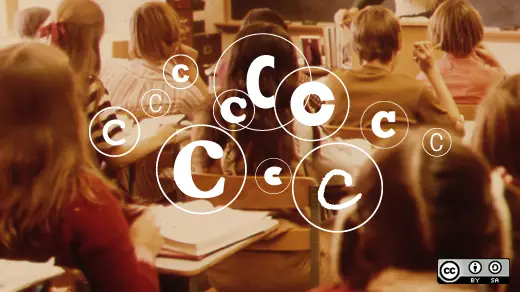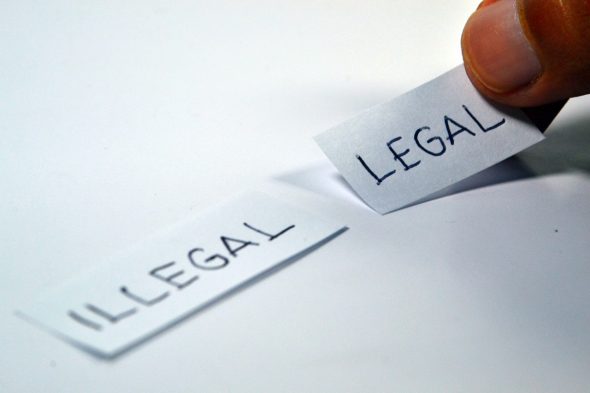The basic underlying principle of copyright is that it protects the method by which an author expresses a particular fact or idea. However, it must be noted that it does NOT protect the basic underlying idea or fact itself.
For instance, you may have an idea for a song or an essay in your mind; copyright doesn’t protect that. It does, however, protect that idea as soon as you put the idea down on a piece of paper.
It’s a straightforward set of precepts that can be summarized in three points:
- Legal and exclusive right. Copyright grants the legal and exclusive right to copy a published work. It grants the holder to reproduce, distribute, perform, display, and make digital copies of the said work.
- Permission to copy. If you are the owner of a copyright on any work, no one else may copy it without your permission; else, it would constitute copyright infringement.
- Copyright can be inherited, traded, or sold to others. While copyright is granted to the creator of a published work, the same can be traded, sold, or inherited on the open market.
What Is Considered Copyright Infringement?
Copyright infringement is using someone else’s published work without obtaining the author’s permission.
It is very easy to breach copyright unknowingly – for instance, playing music in a public area without the necessary permission or licenses may constitute be a violation of copyright. The same is true for using someone else’s photography on a corporate newsletter without attributing copyright to the person who owns the work. It may vary from jurisdiction to jurisdiction, but the principle remains the same.
Related: Legal Obligations of Freelance Writers
Also, remember that the newsletter issuer is always the one responsible. For example, if you use Free Bee to create newsletter emails, you can’t hide behind the platform – it’s still you who inserted that image and pressed send on the newspaper campaign.
Avoiding Copyright Infringement
Copyright infringement can expose a person or entity to legal action, which is something that should be avoided like the plague.
It’s not that complicated to comply with copyright regulations. It can be as simple as obtaining absolute permission to copy works that are protected by copyright.
Other ways you can avoid copyright infringement are the following:
- Check if the owner allows sharing of his copyrighted work with the proper attribution.
- Check if the work is permitted to be reproduced under fair use – that is, the use of a work for educational or non-commercial purposes.
- Know your copyright law or seek the advice of a professional before attempting to reproduce a work that is protected with copyright.
Protecting Yourself from Copyright Infringement as an Owner
If you are a copyright holder, you may be wondering how you could protect yourself from copyright infringement in the first place.
The steps are simple:
- Identify, address, and protect your original works. There are plenty of steps writers and artists can take to identify and protect original works. Mark your works with a properly-worded notice of your copyright. It’s not a requirement, but putting it out in the open will have would-be pirates aware that you take infringement seriously, and will pursue legal action in the event they infringe on your copyright.
- Get registered. Disputes about whether a copyrighted work was in fact infringed happen all the time. All you need to do is look at the countless lawsuits filed by musicians who claimed that another musician has infringed the copyright they hold on a song. To avoid such problems, just head over to Copyright.gov for registration.
- Educate employees about copyright infringement. Copyright infringement can expose a corporate entity to unnecessary and time-consuming legal action – it can be as simple as using an article or photograph taken from the internet and appearing on an official publication to trigger infringement. It is therefore absolutely imperative for employers to make employees aware of the possible risks they may be exposing the company to when they take copyrighted material.
- Practice secure storage or disposal of materials under copyright. Anytime you write and put an idea into paper, it is automatically protected by copyright. This is why proper storage and disposal of copyrighted material is also key to prevent you from being a victim of copyright infringement. According to All the Stuff, important documents containing trade secrets and other valuable information assets should be stored or disposed of securely.
- Familiarize yourself with copyright laws. Many copyright holders are unaware of how copyright law protects them and their works – which inevitably leads to being unaware of how to deal with copyright infringement until it has already occurred. In today’s digital environment, having a basic understanding of copyright law is fundamental for each and every author.
It’s easier to deal with copyright infringement than most people think – all you need is to know your rights, protect them, and stay vigilant against any possible infringement.




Leave a Reply